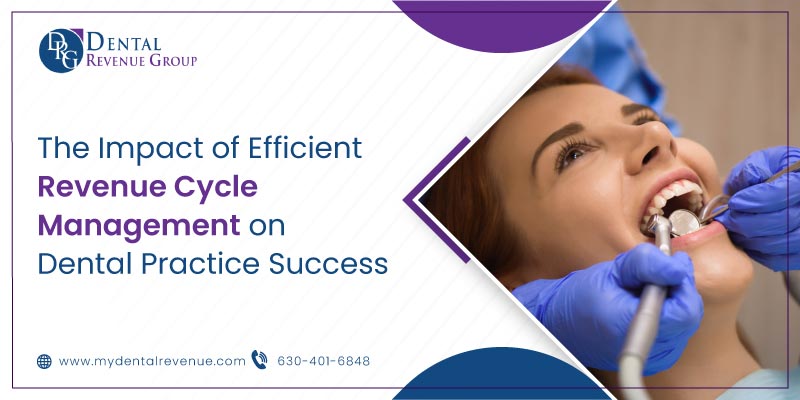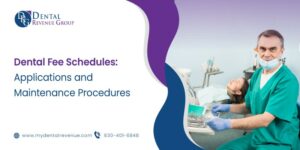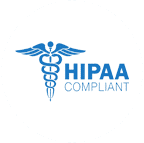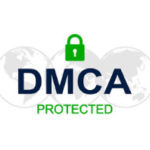Efficient revenue cycle management (RCM) is critical to a successful dental practice. It involves managing the financial processes that help a dental practice optimize revenue, streamline operations, and enhance efficiency. In this blog post, we will delve into the significance of effective revenue cycle management and how it can significantly impact the success of a dental practice.
Understanding Dental Revenue Cycle Management (RCM)
Revenue cycle management (RCM) is a strategic approach utilized by healthcare providers to oversee both administrative and clinical aspects of their revenue cycle. When a patient initiates contact to schedule an appointment, the revenue cycle encompasses various stages until the final payment for the appointment and treatment is received.
Dental Revenue Cycle Management (RCM) constitutes a thorough financial optimization process within the dental industry. It encompasses the entire spectrum of activities related to managing a patient’s financial interactions with a dental practice, starting from the initial appointment scheduling to completing payments for services rendered. The primary objective of RCM is to guarantee precise and timely reimbursement for all services provided, all while ensuring that patients receive the necessary care and support throughout their engagement with the practice.
The Crucial Role of Revenue Cycle Management in Dental Practices
Mastering revenue cycle management (RCM) in dental practices and healthcare organizations is paramount for survival and financial prosperity. RCM encompasses a diverse range of components crucial for enhancing or adversely affecting the financial well-being of a dental practice. Here are several key aspects illustrating why it holds such importance.
Insight into Practice Performance
Finding a moment to pause and evaluate your progress can be challenging in the whirlwind of a bustling dental practice. Access to comprehensive reports and critical data is often lacking. RCM offers a rapid and straightforward means to gauge your practice’s performance, particularly when diligently tracking key performance indicators (KPIs). Valuable practice insights and areas for improvement can be gained through consistently monitoring these metrics.
Curbing Claim Denials
A finely tuned RCM process effectively addresses potential obstacles that could derail a practice’s financial stability. Investing in a proven RCM process often reduces claim denial rates and elevates collection rates. Adequate staff training on accurate coding and billing procedures, an efficient insurance verification process, and proactive patient communication contribute to a thriving practice by minimizing claim denials.
Leveraging Professional Assistance
Collaborating with an RCM partner, such as Apex Reimbursement Specialists, simplifies practice management by tapping into expert assistance. Rather than burdening your team with handling coding, billing, and collections independently, accessing skilled professionals allows for streamlined management of intricate practice components. This strategic partnership not only grants administrative staff more time to focus on other priorities but also enables practitioners to dedicate their efforts toward providing optimal patient care.
Enhanced Financial Performance
Efficient RCM leads to improved financial performance for dental practices. By effectively managing billing, coding, and collections, a dental practice can ensure a steady and timely flow of revenue. Timely payments from insurance companies and patients provide a steady cash flow, enabling the practice to meet its financial obligations and invest in its growth and development.
Reduced Administrative Burden
Effective RCM streamlines administrative processes, reducing the burden on staff and freeing up time to focus on patient care. Automating billing, claims processing, and payment posting can significantly reduce manual efforts, minimizing errors and accelerating the revenue cycle. This, in turn, improves productivity and allows the dental practice to operate more efficiently.
Patient Satisfaction and Retention
Efficient RCM contributes to enhanced patient satisfaction. Clear and transparent billing practices, accurate invoicing, and smooth claims processing leave a positive impression on patients. Happy patients are more likely to continue seeking dental care from the same practice, leading to increased patient retention and a loyal patient base.
Reduced Denials and Revenue Leakage
One of the significant benefits of efficient RCM is the reduction in claim denials and revenue leakage. The chances of denied claims significantly decrease when billing and coding are accurate and compliant. By promptly addressing denials and resubmitting claims, the dental practice can maximize revenue and prevent potential financial losses.
Improved Compliance and Risk Management
Efficient RCM ensures compliance with legal and regulatory requirements related to billing and financial operations. Compliance reduces the risk of audits, penalties, and legal issues arising from billing errors or non-compliance. A compliant practice is a reputable practice, attracting more patients and fostering trust within the community.
Data-Driven Decision Making
RCM involves tracking and analyzing financial data related to billing, collections, and reimbursements. This data provides valuable insights that can be used to make informed business decisions. Identifying trends, understanding payment patterns, and optimizing billing strategies are possible through data analysis, allowing the dental practice to adapt and grow strategically.
How Technology Enhances Revenue Cycle Management in Dental Practices
In today’s digital age, integrating technology into revenue cycle management (RCM) processes is a cornerstone for dental practices’ success. Advanced tools, such as dental practice management software, email encryption, and electronic claims and attachment solutions, can improve a practice’s financial performance. Let’s explore how incorporating technology optimizes RCM, resulting in various benefits that positively impact the practice’s efficiency and bottom line.
Enhanced Communication Efficiency
Implementing technology streamlines communication within the dental practice. Utilizing dental practice management software and email encryption ensures secure, accurate, and trackable end-to-end communications. This translates to expedited claim processing and faster reimbursements from payers, ultimately improving treatment acceptance and timely payments from patients.
Heightened Operational Efficiency
Shifting away from manual or less automated digital processes frees up valuable time for staff to focus on critical tasks. This includes researching industry trends, exploring new service offerings, identifying marketing opportunities, and enhancing patient service delivery. The efficiency gained through automation significantly enhances overall practice productivity.
Elimination of Paper-Based Processes
Embracing technology eradicates the challenges associated with paper-based documentation. Manual handling of paperwork often leads to errors, claim denials, and delayed payments. By eliminating paper-based processes, dental practices can enhance accuracy, reduce errors, and contribute to eco-friendly and efficient workflow.
Seamless Implementation with Minimal Disruption
Modern technology solutions are user-friendly and require minimal setup and intervention from technology teams. For instance, encrypted email solutions can seamlessly integrate with existing email platforms, ensuring a smooth transition with minimal training for the staff. This ease of implementation minimizes disruptions in daily operations.
Cost-Effective Practices
Digital automation translates to substantial cost savings for dental practices. By reducing the reliance on paper, mailing costs, and the time required for manual tasks, practices can save significant amounts. Consolidating technology services further contributes to cost-efficiency, while streamlined processes minimize labor costs.
Risk Mitigation and Compliance
Utilizing technology in RCM minimizes the risk of errors and compliance breaches, particularly in billing processes. Automated systems ensure accurate submissions, reducing the potential for delays, claim denials, and data breaches. Adhering to HIPAA regulations and maintaining patient trust is vital for a practice’s reputation and financial stability.
Accelerated Payments and Simplified Processes
Adopting electronic transmission and retrieval expedites documentation and image retrieval, ultimately enhancing the revenue cycle. Automated claim submissions lead to faster acceptance and payment, often within two weeks. Real-time feedback provided by advanced claim software enables proactive error correction, saving time and resources.
User-Friendly Simplicity
Once integrated, technology simplifies back-office tasks and provides immediate benefits to the dental team. Minimal training is required to navigate and manage RCM processes efficiently. Patients, payers, and referring providers also experience a seamless and secure interaction with the practice, fostering trust and efficiency.
Conclusion
Revenue cycle management is not merely a set of processes; it’s a linchpin for a thriving dental practice. It offers insights into performance, reduces claim denials, and presents an opportunity to leverage specialized expertise. Mastering RCM can reshape a dental practice’s financial landscape, ensuring sustained success and efficiency in delivering superior patient care. Dental practices can optimize revenue streams, improve operations, and provide better patient care, achieving long-term success and sustainability.











